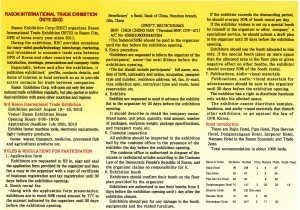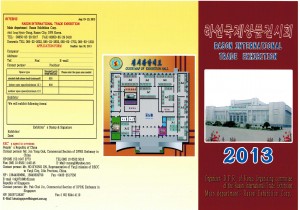According to Yonhap:
The only sign of activity at the North Korean trade promotion agency here in Beijing is the faintly lit banner in front, and it is hard to tell whether the office is open for business.
No one is seen at the reception desk of North Korea’s Investment and Development Group building, located in a northern Beijing suburb, and its front door, though appears to be open, remains stationary for most of a weekday.
“North Koreans are still working there,” said a Chinese cleaner near the building, who only gave his surname Wu.
The Beijing branch of North Korea’s Investment and Development Group was believed to have launched operations early last year, but it appears certain to be a dead duck as the North’s unpredictability continues to keep Chinese investors away.
Its website has not posted any statement since Jan. 23 this year, and there was no response to a phone call made on Aug. 16.
A South Korean diplomatic source in Beijing, who spoke on the condition of anonymity, said the North Korean branch has been dormant since the North’s defiant launch of a long-range rocket last December.
Tensions on the Korean Peninsula soared early this year, with North Korea conducting its third nuclear test and its near-daily war threats during an annual joint military drill between South Korea and the United States.
“We have figured out that operations at the Beijing office of the North’s Investment and Development Group almost ground to a halt,” the source said.
…
China, North Korea’s biggest trading partner and aid donor, has become increasingly frustrated with its wayward ally, particularly after the North’s February nuclear test. In May, the Bank of China closed accounts with North Korea’s Foreign Trade Bank, which was accused by the U.S. of helping to finance the North’s nuclear weapons program.
According to the South Korean Embassy in Beijing, North Korea’s trade volume with China fell 6 percent on-year in the first six months of this year.
The North’s trade with China stood at US$2.95 billion in the January-June period, compared with $3.14 billion a year earlier, embassy officials said.
Exports to China rose 6 percent to $1.36 billion, while imports declined 14 percent to $1.59 billion, they said, citing official data.
Read the full story here:
N. Korea appears to struggle to woo Chinese investors
Yonhap
2013-8-23


